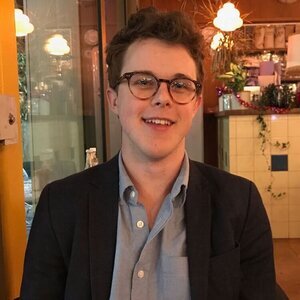Maths Model Personal Statement
This is a model personal statement by a succesful Oxbridge Maths applicant.
Maths, especially pure Maths, feels like another language to me; just as a meaning can be described with words in any number of ways, so can a Maths proof be solved with infinite methods. For this reason, I relish proving generalised equations, as they enhance my mathematical vocabulary, and ability to connect different branches of Maths. I particularly like 3blue1brown's proof of Euler's Theorem using Group theory, as well as his explorations of Complex Analysis and Calculus.
In year 12, my UKMT performance was rewarded with an invitation to The Royal Institute of Maths for a stimulating day of lectures, quizzes and problem solving. The lecture on 'How real are real numbers?' was particularly inspiring, and I was surprised by how little we know about even the natural numbers, as the proportion with a finite expression or description rapidly approaches zero. This has inspired me to do further research into number systems and read 'Surreal Numbers' by Donald Knuth.
Some of the most absorbing and thought-provoking problems I've encountered are from MAT and STEP papers, and upon solving a problem, my curiosity often leads me extend it with increasing levels of abstraction. One particular question involved creating variables to solve a graphical problem algebraically, and the diagram was constructed in such a way that it was tempting to explore the problem further. By constructing more intricate geometries, calculating components, finding generalised relations and then proving them, I developed my ability to apply the topic in new and interesting ways.
I am always exploring applications of sequences across other fields of Maths, as it is one of my favourite topics. After experimenting with Pascal's triangle, I constructed triangular arrays with different rules for how to construct one layer from another. I have read Greg Egan's proof and Robin Houston's paper on the minimum length of super-permutations, and after taking inspiration from the mathematical syntax of Surreal Numbers, I created a notation system that describes a vast expanse of sets, including counting numbers in any base and abstract objects. To my knowledge, many of these sequences have not yet been described elsewhere. I am taking my findings further in an EPQ, using computational generation to produce these sets, and deriving conjectures to describe the properties of this notation system, with the intention to prove or disprove them to form new mathematical identities.
Having taught myself Python, I created a simulation of the stock market, where stockholders could compete against opponents and bots during work experience at J.P. Morgan. I have also found all the periodic instances of 'happy cubes' in Python, and used recursive functions to print curves in the console. I am fascinated by Mathematica, which I am learning by creating subject notes for A-level topics, and developing those notes into interactive lessons to share with my peers.
Reading Michael Hutching's 'The Mathematics of Rubik's Cube' inspired me to use puzzle cubes to explore Group theory. I applied this knowledge by using commutators and conjugates to systematically create a series of formulae to help me solve cubes such as the Skube and Square-1, with limited moves or formulas. I then used symmetry groups to solve n by n Rubik's cubes in inverse order, starting with the corners, followed by the sides and then centres.
I play the piano in several school ensembles, and I revel in using mathematical inspiration to guide my compositions. I play chess, and through running the school chess club, I became interested in the ELO rating system, and I am now exploring the Glicko rating system. I hope to combine my interest in Maths with technology to one day create educational software to teach Maths in a way that is tailored to the individual's learning style, improving upon current classroom methods. I aim to pursue a career in academia, and publish papers in new and original areas of Maths.


